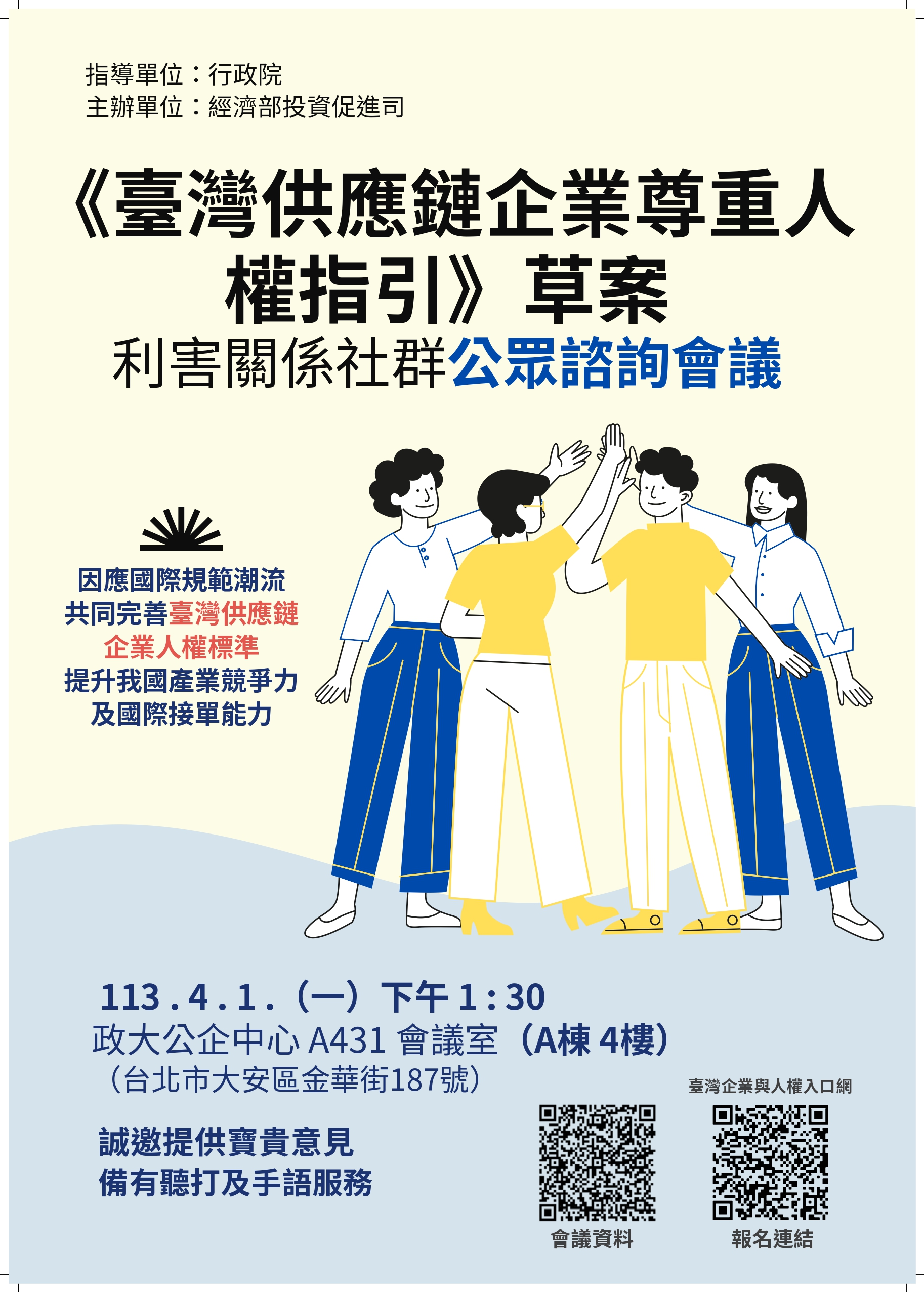
Description
In June 2011, the United Nations Human Rights Council adopted the United Nations Guiding Principles on Business and Human Rights (hereinafter referred to as 'UNGPs'), aiming to establish internationally recognized standards for preventing and addressing adverse human rights impacts in business environments. Since 2015, the UN has been working on drafting the Treaty on Business and Human Rights, gradually shifting business and human rights issues from voluntary guiding principles toward a substantially binding treaty. Given the increasing emphasis on corporate respect for human rights in today's international community, various countries have been legislating international business and human rights standards through legislation, amendments, or administrative guidelines to strengthen regulations on their domestic enterprises' respect for human rights.
In June 2011, the United Nations Human Rights Council adopted the Guiding Principles on Business and Human Rights (UNGPs), establishing a set of globally recognized standards to prevent and address adverse human rights impacts in business activities. Since 2015, the United Nations has been working on drafting a "Treaty on Business and Human Rights," aiming to transition from voluntary guiding principles to a binding international treaty. Recognizing the growing global emphasis on corporate responsibility for human rights, many countries have moved to formalize international corporate human rights standards through legislation, legal reforms, or the issuance of administrative guidelines to strengthen and regulate respect for human rights among domestic enterprises.
The European Union is in the final stages of adopting the Corporate Sustainability Due Diligence Directive (CSDDD), which mandates human rights due diligence, supported by specific administrative penalties and civil compensation measures. Several European nations have already incorporated human rights due diligence and other human rights respect measures into their domestic legislation. This includes Western European countries such as Germany and France, Northern European nations such as Norway, and the United Kingdom. In the Asia-Pacific region, both the Republic of Korea and Japan are actively developing and implementing relevant laws and guidelines, encouraging companies to respect human rights through measures such as human rights due diligence.
The European Union is in the final stages of adopting the Corporate Sustainability Due Diligence Directive (CSDDD), which mandates enterprises to conduct human rights due diligence and includes specific provisions for administrative sanctions and civil compensation as enforcement measures. Similarly, European nations such as Germany, France, the United Kingdom, and Norway have incorporated requirements for human rights due diligence and related measures into their domestic legal frameworks to ensure corporate respect for human rights. In Asia, neighboring countries like South Korea and Japan are also working on relevant laws and guidelines, encouraging businesses to uphold human rights through human rights due diligence and other initiatives.
Business and human rights is a highly valued issue in Taiwan. In 2020, Taiwan published the "Taiwan National Action Plan on Business and Human Rights" based on the UN Guiding Principles on Business and Human Rights, proposing multiple action s to strengthen business human rights protection. For the further implementation of the National Action Plan, whereby non-financial information disclosure is to be enhanced, proactively establish human rights policies, implement human rights due diligence, and provide effective grievance remedy systems, the Ministry of Economic Affairs serves as the secretariat unit under Executive Yuan's direction. The "Taiwan Supply Chain Enterprise Human Rights Guidelines" are being drafted and legal frameworks are being established simultaneously. Currently, inter-ministerial consultation meetings have been completed with the Financial Supervisory Commission (FSC), Ministry of Labor (MOL), Ministry of the Interior (MOI), Ministry of Justice (MOJ), and Ministry of Environment (MOE), and the initial draft guidelines have been revised according to various ministries' recommendations.
Taiwan places significant emphasis on business and human rights. In 2020, the country released the "Taiwan National Action Plan on Business and Human Rights (NAP)" in alignment with the UNGPs, outlining various action points to enhance corporate human rights protections. To further implement the national action plan, businesses are encouraged to improve non-financial information disclosure, establish human rights policies, conduct human rights due diligence, and provide effective grievance mechanisms. These measures aim to align corporate practices with international standards within the global industrial supply chain.
Under the directives of the Executive Yuan, the Ministry of Economic Affairs serves as the secretariat unit for the plan and has concurrently developed the "Guidelines for Respecting Human Rights by Taiwan's Supply Chain Enterprises" along with establishing related legal frameworks. At present, an inter-ministerial consultation has been completed with the Financial Supervisory Commission, the Ministry of Labor, the Ministry of the Interior, the Ministry of Justice, and the Ministry of Environment. Based on their feedback, the first draft of the guidelines has been revised.
This public consultation meeting, aimed at facilitating multi-stakeholder dialogue between government entities, business sectors and civil society, upholds the fundamental principle of inclusive policy participation. We sincerely invite relevant units to attend and provide valuable input on the draft " Taiwan’s Draft Guidelines for Enterprises to Respect and Human Rights in the Supply Chains," jointly exploring and improving the draft guidelines' content to fully implement Taiwan's "National Action Plan on Business and Human Rights."
The consultation welcomes participation from the following stakeholder groups:
Industry and trade associations
Labor unions
Business enterprises
Non-governmental organizations
Academic institutions
INFO
Organizing Authority: Investment Promotion Division, Ministry of Economic Affairs (MOEA)
Date and Time: 1 April 2024, 13:30 hours
Venue: NCCU EMBA Centre, Hall A431 (187 Jinhua Street, Da'an District, Taipei City, Taiwan)
Registration Link: https://www.surveycake.com/s/6dQbW